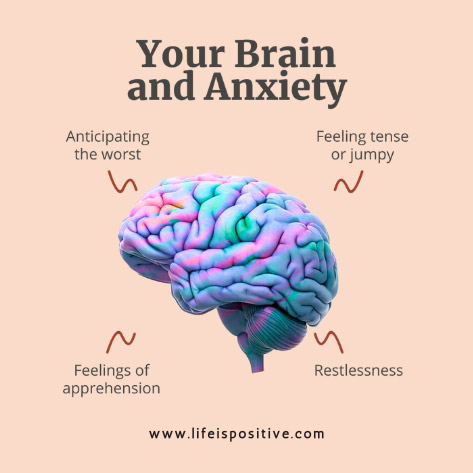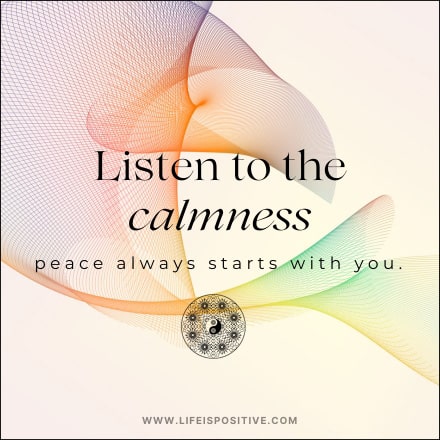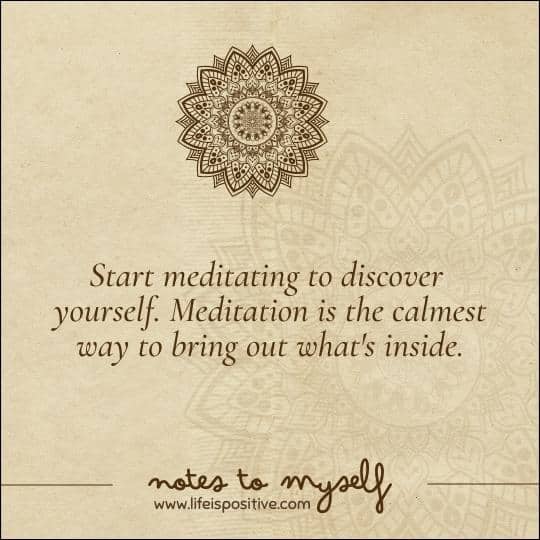|
Getting your Trinity Audio player ready...
|
Feeling like your brain is stuck in overdrive? Anxiety has a way of hijacking our thoughts, making even simple tasks feel overwhelming.
But here’s the good news—meditation to reduce anxiety actually works. Science-backed and stress-busting, meditation helps quiet the mental chaos, bringing a sense of calm when you need it most.
Whether you’re a skeptic or a stress case (or both), just a few minutes a day can rewire your brain for peace. So, if you’re ready to trade racing thoughts for relaxation, let’s dive into how meditation to reduce anxiety can be a game-changer.
Anxiety: The Storm
Before we jump into how meditation to reduce anxiety works its magic, let’s talk about why anxiety even happens in the first place.
It’s basically your body’s built-in alarm system—designed to keep you safe. But thanks to modern life (hello, never-ending to-do lists, and doomscrolling), this once-helpful survival instinct has turned into an overactive fire alarm, going off at the slightest hint of stress.
When your brain senses danger—real or imaginary—it floods your system with stress hormones like cortisol and adrenaline, leaving you jittery, sweaty, and short of breath. Over time, chronic anxiety can drain your energy and leave you feeling mentally fried.
That’s where meditation to reduce anxiety steps in like a chill best friend. By calming your mind and resetting your body’s stress response, it helps you hop off that exhausting mental treadmill and finally find your balance.
How Meditation Reduces Anxiety
Think of meditation as the ultimate reset button for your brain—like unplugging your mind and plugging it back in when it’s acting glitchy.
By zoning in on your breath, a mantra, or even just how your body feels, you’re basically training your brain to ditch the endless mental noise. Science backs it up, too!
Meditation flips the switch on your parasympathetic nervous system (your “rest and digest” mode) and dials down activity in the amygdala—the part of your brain that loves to hit the panic button.
In short, less overthinking, more deep breaths, and a whole lot more peace.
Read: What Does Meditation Do To The Brain
When practiced consistently, meditation to reduce anxiety can:
• Lower your heart rate and blood pressure
• Decrease levels of cortisol (the stress hormone)
• Improve emotional regulation
• Enhance self-awareness
• Increase feelings of calm and well-being
Getting Started with Meditation to Reduce Anxiety
If you’re imagining a monk-like scenario with incense and hours of silence, relax! Meditation to reduce anxiety doesn’t have to be complicated or time-consuming. Here’s a simple guide to help you get started:
1. Find Your Space
Choose a quiet, comfortable spot where you won’t be interrupted. This could be a cozy corner of your home, a park bench, or even your car (parked, of course).
2. Get Comfortable
Sit or lie down in a position that feels good. You don’t need to twist yourself into a pretzel—just make sure you’re comfortable and supported.
Read: Uplifting Quotes to Help with Anxiety
3. Focus on Your Breath
Close your eyes and take a deep breath through your nose, then exhale slowly through your mouth. Pay attention to the sensation of your breath as it enters and leaves your body.
4. Let Thoughts Come and Go
Your mind will wander—that’s normal! Instead of fighting your thoughts, acknowledge them and gently guide your focus back to your breath.
5. Start Small
Begin with just 5 minutes a day. As you get more comfortable, gradually increase the time. Remember, consistency is key.
Types of Meditation to Reduce Anxiety
Not all meditation styles are created equal. Here are a few types of meditation to reduce anxiety so you can find one that suits your vibe:
1. Mindfulness Meditation
The gold standard for anxiety relief, mindfulness meditation involves focusing on the present moment without judgment. By grounding yourself in the “now,” you can break free from the cycle of worry and overthinking.
2. Guided Meditation
Perfect for beginners, guided meditations are led by a teacher or app. These sessions often include soothing instructions and visualization exercises to help you relax.
3. Body Scan Meditation
This technique involves paying attention to different parts of your body and releasing tension as you go. It’s a great way to reconnect with your physical self and unwind.
4. Loving-Kindness Meditation
Feeling extra stressed? Loving-kindness meditation focuses on cultivating compassion for yourself and others. It’s like giving your anxiety a warm, fuzzy hug.
5. Transcendental Meditation
This mantra-based practice uses a specific word or phrase to help you transcend anxious thoughts and find inner stillness.
Read: What is The Purpose of Buddhist Meditation
The Science Behind Meditation to Reduce Anxiety
If you’re the type who needs cold, hard facts before jumping on the meditation bandwagon, you’re in luck—science has your back. Turns out, regular meditation doesn’t just make you feel calmer; it literally rewires your brain.
Studies show it can shrink your amygdala (the little stress factory in your head), boost connections in your prefrontal cortex (hello, better decision-making), and seriously dial down anxiety.
Take this for proof: A 2014 meta-analysis in JAMA Internal Medicine found that mindfulness meditation significantly reduces anxiety, depression, and stress.
And if that’s not convincing enough, Harvard neuroscientists discovered that just eight weeks of meditation can physically change your brain. Yes, you read that right—two months to a mental makeover. Not too shabby for just sitting still, huh?
Common Misconceptions About Meditation
Let’s clear up a few myths about meditation to reduce anxiety:
1. “I can’t stop thinking, so I’m bad at meditation.”
Meditation isn’t about eliminating thoughts; it’s about learning to observe them without getting swept away.
2. “I don’t have time.”
Even a few minutes a day can make a difference. Meditation is like mental floss—short and sweet but incredibly beneficial.
3. “I need a fancy setup.”
All you need is a willing mind and a quiet spot. No incense or crystals are required.
Final Thoughts: Meditation to Reduce Anxiety
The best thing about meditation to reduce anxiety? It’s for everyone—no fancy equipment, no strict rules, and definitely no need to be a Zen master. Whether you’re a busy parent, a stressed-out student, or just someone trying to juggle the chaos of daily life, meditation is your personal pause button. It’s a way to step off the anxiety treadmill and just breathe.
Think of it as a gift to yourself—a few sacred moments of stillness in a world that never stops moving. The beauty of meditation in reducing anxiety is that it meets you exactly where you are. Whether you’ve got five minutes or fifty, whether you’re on your couch, in your car, or even hiding out in the bathroom (no judgment!), you can tap into a sense of calm whenever needed.
So, why not give it a try today? No pressure, no perfection—just a few deep breaths to reset your mind and body. Because the truth is, every little moment of mindfulness adds up. You don’t have to “clear your mind” or sit in an impossible yoga pose. Just showing up is enough. One breath at a time, you’re rewiring your brain for resilience.
And here’s the best part: the more you practice, the more that inner calm sticks around. Meditation offers a way to return to peace, whether it’s a hectic morning, a nerve-wracking presentation, or a sleepless night. You’re not just easing stress—you’re building a toolkit for lifelong mental strength.
Ready to start? Take a deep breath in… and exhale. There you go.
For more empowering content, connect with our vibrant community here ➡️ Social Media




